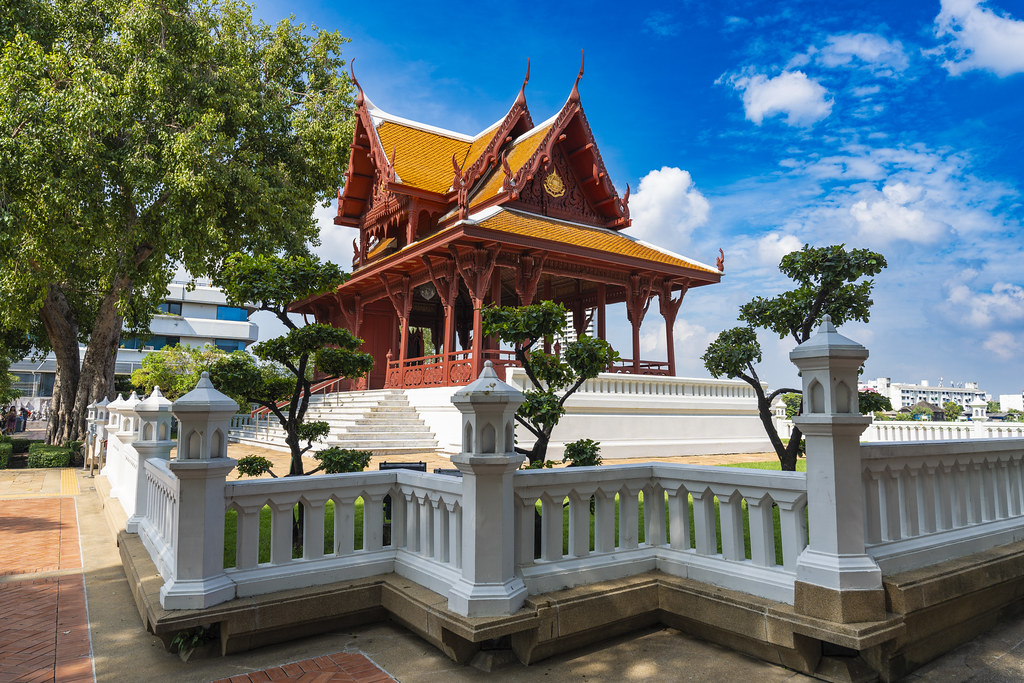A Royal Retreat in the Heart of Bangkok
Unveiling Historical Splendor
Nestled along the Chao Phraya River, the Santi Chai Prakan Royal Pavilion stands as a testament to Thailand’s rich cultural heritage. This architectural marvel, often overlooked by tourists, offers a serene escape from the bustling streets of Bangkok.
A Journey Through Time
Exploring Royal Thai Architecture
The pavilion, with its intricate Thai-style architecture, showcases the exquisite craftsmanship of the late 19th century. Its octagonal shape and ornate decorations reflect the artistic prowess of the Rattanakosin period, inviting visitors to step back in time.
Riverside Tranquility
A Perfect Spot for Reflection
Surrounded by lush gardens and offering panoramic views of the river, the Santi Chai Prakan Royal Pavilion provides a tranquil setting for both locals and tourists. It’s an ideal location for those seeking a moment of peace or a picturesque backdrop for photography.
Cultural Significance
Preserving Thai Heritage
Originally built as a royal residence, the pavilion now serves as a symbol of Thailand’s commitment to preserving its cultural landmarks. It stands as a reminder of the country’s royal legacy and architectural excellence.
Visitor Experience
Practical Information for Travelers
The pavilion is easily accessible and offers free entry, making it an attractive option for budget-conscious travelers. Its proximity to other historical sites in Bangkok makes it a perfect addition to any cultural itinerary.
Beyond the Pavilion
Exploring the Surrounding Area
Visitors can enhance their experience by exploring the adjacent Santi Chai Prakan Park, which offers additional green spaces and recreational facilities. The area also provides excellent opportunities for observing local life along the riverbank.


